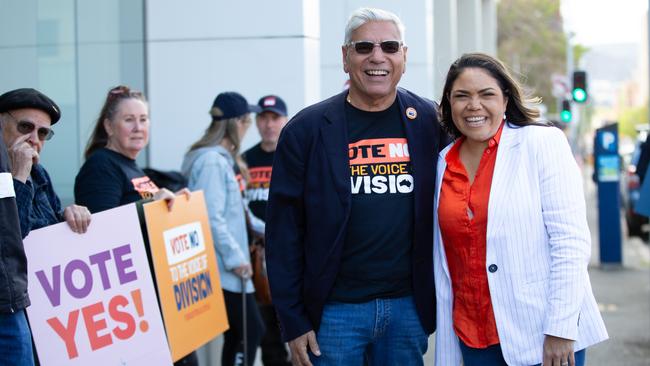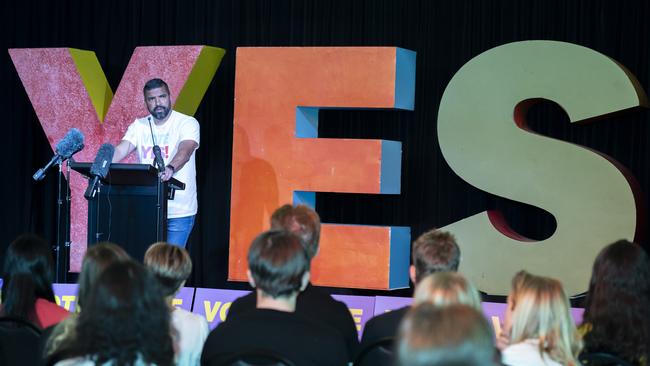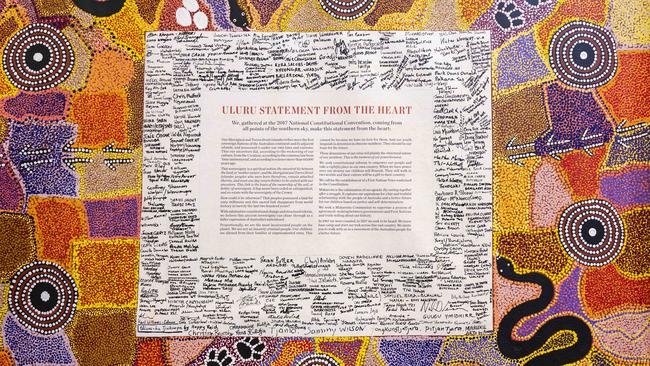Joe Hildebrand: Yes campaign destroyed goodwill and needs to tread lightly
About two-thirds of Australians supported the Voice when it was just an idea, yet on Saturday the nation voted overwhelmingly to reject the proposal. How did that happens, asks Joe Hildebrand.
Opinion
Don't miss out on the headlines from Opinion. Followed categories will be added to My News.
There will be many broken-hearted Australians today, but we cannot let that lead to a broken Australia.
There will be frustration, anger and sorrow but we cannot let that turn into hatred, resentment and fear.
And most of all we cannot blame Australia — that is to say Australians — for getting it wrong.
In a democracy it is by definition impossible for the people to get it wrong.
And so we on the Yes side must instead ask ourselves why we failed to bring a majority of Australians with us — and already there are some pretty obvious answers to that question.

The first truth we must acknowledge is that we didn’t just fail to bring people with us, we actually lost those who were with us.
Around two-thirds of Australians supported the Voice when it was just an idea, yet on Saturday Australia voted overwhelmingly to reject the proposal.
Given the unprecedented amount of financial, institutional and cultural support the Yes side had, how on earth was that able to happen?
In large part the answer lies in the question.

Australians instinctively love an underdog and voters in the West more generally are increasingly wary of once-trusted institutions.
And so, when all of society’s most powerful voices are aligned in one cause it prompts suspicion and triggers a rebellious streak.
This is perhaps the greatest irony of the campaign: A push to recognise and listen to the most marginalised and disadvantaged people in our community became cast as the highest levels of the establishment telling ordinary Australians what to think and do.
Instead of appearing as a case for the most powerless it became a case being pushed by the most powerful.

It was also a case that was pushed in the reverse order it should have been.
For most Australians the Voice was a solution to a problem that they did not know existed, when they were facing mounting problems of their own.
While there may be a nagging sense in the back of the national consciousness that Indigenous people have it worse than the rest of us, the sheer scope and depth of the problem was not laid out in clear and relatable terms.
Indeed, when an impassioned Anthony Albanese declared on election night that he would implement the Uluru Statement from the Heart, most voters were probably unaware of what that even was.
That was also the moment the No campaign effectively began, and with charismatic, clear communicators like Jacinta Price and Warren Mundine quick to question or condemn a proposal that was utterly formless — with no question, no amendment and no campaign structure — it meant that for most Australians the only high-profile Indigenous people they saw talking about the Voice were both opposed to it.
There were myriad other mistakes but the greatest mistake may still be the one yet to come, and that is the accusation by embittered activists on the far left that Australia voted No because Australians are racist.
This is the most damaging, divisive road Yes supporters can possibly go down.
And the worst part is that such reckless accusations of racism are an immeasurably huge part of the reason why the Yes vote failed. There is no more insulting and simplistic response to someone you disagree with than to call them names, no better way to piss people off and lose their support than by turning their positive sentiment into a negative ultimatum.
And so millions of Australians who were once planning to vote Yes out of the goodness of their hearts were effectively told they were racist or ignorant if they didn’t, incinerating that priceless kernel of goodwill.
Got a news tip? Email weekendtele@news.com.au




